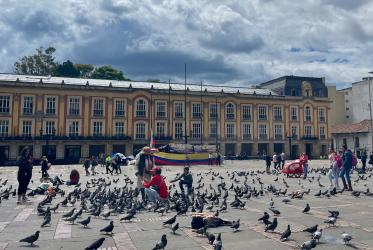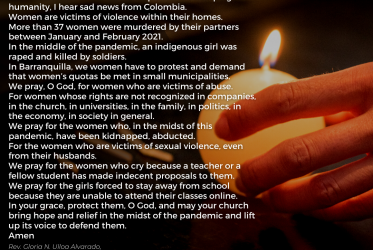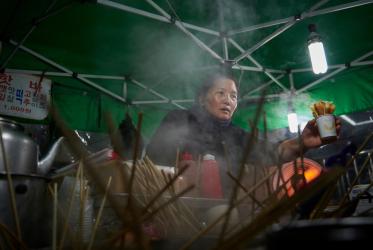Displaying 1 - 20 of 47
WCC backs extension of ceasefire in Colombia
18 January 2024
“Remembering Past Massacres” webinar will focus on Latin America
16 September 2021
COVID-19 in conflict zones: “a crisis within another crisis”
27 November 2020
“Conflict Zones and Covid-19” webinar
26 November 2020














